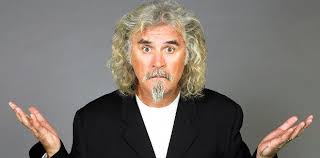Night shift in the sewing lager. The guard on duty allows each group of prisoners to sing Stille Nacht. The Poles are reluctant but even the Jewish prisoners join in. Some pass tiny gifts, mangers made out of straw, and stars made from scrap paper to each other.
Hard frost, a howling wind, snow falling and lying on the roofs of the blocks. SS-Untersturmführer Max Koegel’s breathe smells of rum to warm him on the inside. The glitter of death’s-head insignia of skull and crossbones, and braid on the hard visor. His peeked cap is too tight on his balding head. He stamps his leather boots under his greatcoat to keep out the cold.
Behind him stands Johanna Langefeld and inclines her head towards him and they listen together to the rise and falling beat of the distant choir. They could be a dumpy husband and wife, but she has an adolescent child, out of wedlock. Both have fallen on hard times and risen through the ranks. She has been appointed by Riechsfuhrer Heinrich Himmler as the chief female guard, and runs the camp efficiently. Her bobbed hair is swept up over her head and kept in place with a clasp hidden by a soft envelope cap of feldgrau wool, the kind worn by Hitler youth or women. Her uniform is no different from the other guards, short jacket and white, crisp and open-neck blouse, long skirt and black tights and shiny, black, leather boots. For outside work, she has a black cape over her shoulder and soft leather gloves and she kneads the two arthritic fingers on her left hand back and forth, chafing them to keep the circulation moving.
Rows of shivering prisoners in thin cotton, striped, uniforms stand to attention with their chests out. Langefeld has her spies and makes it her job to know the troublemaker’s faces, but this is an insurrection that demands the presence of the camp commandant. Felt lilac triangles, with a purple bar, on their chests mark them out as Jehovah Witnesses.
Blockova, Bertha Liedmater has them sound Appel off in sing-song fives. ‘2007, 2008, 2009, 2010, 2011.’ The count finishes on a strident note. Low numbers mark them out as camp veterans. Jehovah Witnesses, forty in total, who have been in the camp since near its inception and learned the secret of invisibility.
Bertha stares inside the underground bunker dimly lit by the reflection of falling snow. Hospital workers scrape skin and cloth and the tattoo of frozen bodies from the stone floors of the cells. Marked as communists by their red triangle, they work as a team, piling corpses on to the back of wooden carts. Nobody will make a run for it.
Laundry workers, asocials, prostitutes from Berlin, with their black triangles, have a cushy number on the sonderkommando. Skilled at massaging ghost-coloured limbs in moonlight, they snap the curved claws of fingers and undress those that have gone beyond the little death of orgasm. Frozen dummies with their mouths ajar, they search for false teeth and wield a set of pliers for sorting gold teeth and crowns. Spectacles that have fallen from blank faces are flung beside crutches and bandages. Staring glass eyes uncaring of decorum look back at them. Their stiff and bloodied clothes taken back to the Effektenkammer to be quickly washed for reuse. Nothing wasted but lives.
Kogel opens his mouth to address the prisoners, but instead turns to Langefeld, whispers, ‘Merry Christmas,’ and wanders away back to the heat of the office block, with his hands behind his back, whistling Stille Nacht .
Two tall blonde-haired woman guards, click their heels together and stand to attention as he passes, holding Alsatian dogs. ‘Heil Hitler!
The animals are protected from the cold by a cape fastened under their chin and emblazoned with the lightning shaped, SS. The dogs open mouths show pink tongues, and a guttural growl escapes from the back of their throats as the choke chain is pulled to silence them.
Bertha squints sideways as the chief women guard addresses her subordinates in matching caps and capes. The lorry rumbles away towards the shooting gallery leaving grey slush track in the falling snow. Bertha takes off her striped hat, while gazing at Langefeld’s feet. ‘With the greatest respect we have already shown we are willing to work. But it is against the will of Jehovah and contrary to our beliefs to sew uniforms and assist in your war work.’
‘Your refusal should be punished by death. But in this case, someone higher up has taken an interest, and I’m willing to be lenient. We’ll give you a week in the bunker, bread and water on alternate days and check on you next week to see if your answer has changed.’
The head guard nods her head and Bertha takes the lead, the others fall in behind, shuffling in step, snow sticking to their wooden clogs. A prisoner twists her ankle and stumbles. The dogs let off their choke chains, bound and pounce. Her arms shoot up and hands out and fingers clawing to protect herself, but the weight of well-fed beasts and their teeth with the first taste of blood drives them to frenzy. One rips at her face, tears her nose and comes away with a part of her cheek in its mouth, before snapping at her lips and throat. The other savages her thigh and leg, its head jerking her body back and forth, back and forth in the falling snow.
Her shrieks echo around the quadrangle, the high walls and beyond the low-pitch roofs of the SS guard’s houses, outside the camp, and is taken up by wood pigeons cooing in the lindenbaum trees, and the cobbled lane that marks the path to the camp, and out beyond the vast and frozen lake, where the church steeple of Fustenberg can be seen in the distance and catches the eye from the camp gates.







